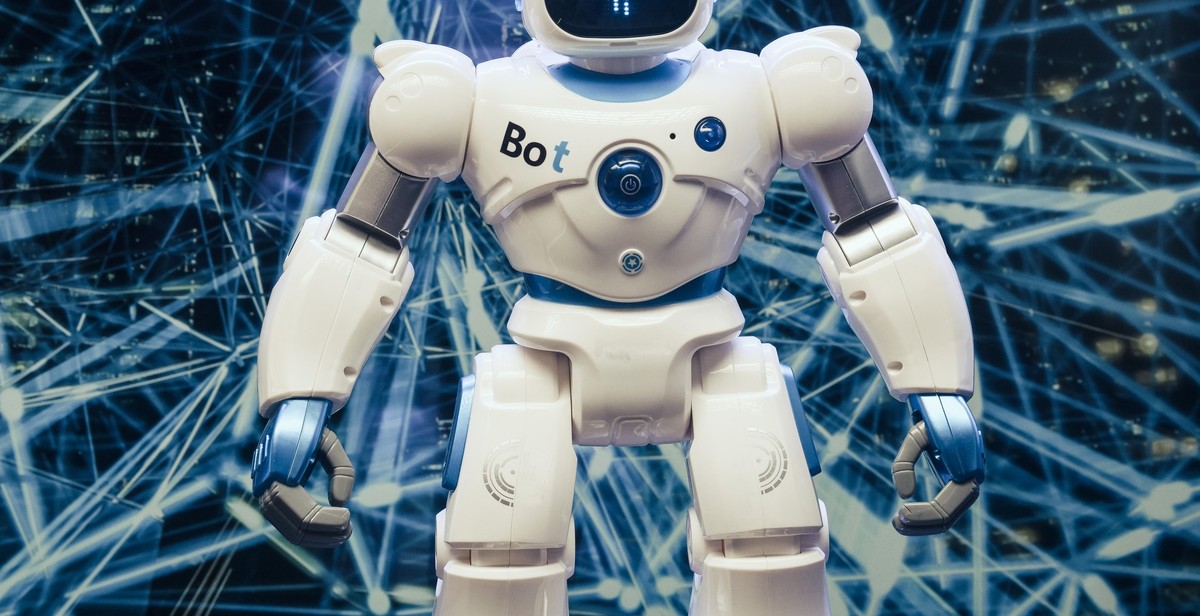The Role of Bots in Our Digital Future
Bots, short for robots, are becoming an increasingly important part of our digital future. These automated software programs are designed to perform specific tasks, such as customer service, data analysis, and even content creation. With advances in machine learning and artificial intelligence, bots are becoming smarter and more capable, allowing them to take on more complex tasks and provide better results.
The Benefits of Bots
One of the main benefits of bots is their ability to automate repetitive tasks, freeing up time and resources for more important work. They can also work 24/7, providing round-the-clock support and service to customers. Bots can also improve efficiency by reducing errors and speeding up processes.
Another advantage of bots is their ability to collect and analyze data. By processing large amounts of data quickly and accurately, bots can provide valuable insights and help businesses make informed decisions.
The Future of Bots
The future of bots is bright, with many experts predicting that they will play an even larger role in our digital lives in the years to come. As they become more advanced, bots will be able to perform increasingly complex tasks and provide more personalized experiences. They may even become integrated into our daily lives, assisting with everything from household chores to healthcare.
However, there are also concerns about the impact of bots on employment and privacy. As bots continue to replace human workers in certain industries, it is important to consider the potential consequences and find ways to mitigate them.
Overall, the role of bots in our digital future is an exciting and rapidly evolving field, with many opportunities and challenges ahead.

What are Bots?
Bots, short for robots, are software programs that are designed to automate tasks that are repetitive and mundane. They are programmed to perform specific tasks that are repetitive and can be done without human intervention. Bots are created to perform a wide range of tasks, from simple tasks like answering frequently asked questions to complex tasks like analyzing data and making predictions.
Bots are widely used in various industries, including healthcare, finance, e-commerce, and customer service, to name a few. They are programmed to perform tasks that are time-consuming and repetitive, allowing businesses to focus on more important tasks that require human intervention.
Types of Bots
There are different types of bots, each designed for specific tasks. The following are some of the most common types of bots:
- Chatbots: These are bots that are designed to simulate human conversation. They are programmed to respond to specific questions and provide relevant information. Chatbots are widely used in customer service, where they help customers get quick answers to their questions.
- Web crawlers: These are bots that are designed to scan websites and collect data. They are used by search engines to index websites and provide relevant search results.
- Social media bots: These are bots that are designed to automate social media tasks, such as posting updates, liking posts, and following users. They are often used by businesses to manage their social media presence.
- Transaction bots: These are bots that are designed to perform transactions, such as buying and selling stocks or making online purchases. They are widely used in finance and e-commerce.
- Personal assistant bots: These are bots that are designed to assist users with various tasks, such as scheduling appointments, setting reminders, and sending messages. They are often used on mobile devices and are designed to make life easier for users.
Overall, bots are an essential part of our digital future. They are designed to automate tasks and make our lives easier. As technology continues to advance, we can expect to see more and more bots being developed to perform a wide range of tasks.

The Role of Bots in Our Digital Future
Bots, or software applications that run automated tasks, are becoming increasingly prevalent in our digital world. They are designed to perform a range of functions, from automating repetitive tasks to providing customer service and generating insights from data. Here are some of the ways bots are shaping our digital future:
Automation and Efficiency
Bots are great at automating repetitive tasks, freeing up time for humans to focus on more complex and creative work. For example, bots can be used to automate data entry, generate reports, and handle routine customer service queries. By automating these tasks, companies can achieve greater efficiency and cost savings.
Customer Service
Bots are increasingly being used to provide customer service, particularly in industries such as retail and finance. Chatbots, in particular, are becoming more sophisticated and can handle a range of customer queries, from product recommendations to billing inquiries. By using bots to handle routine customer service queries, companies can improve response times and reduce costs.
Data Analysis and Insights
Bots can also be used to generate insights from data. By analyzing large data sets, bots can identify patterns and trends that humans may miss. This can be particularly useful in industries such as finance and healthcare, where data analysis is critical. Bots can also be used to automate data entry and generate reports, freeing up time for humans to focus on analysis and decision-making.
E-commerce and Sales
Bots are increasingly being used in e-commerce and sales to improve the customer experience and increase sales. For example, bots can be used to provide personalized product recommendations based on a customer’s browsing history. Bots can also be used to handle sales inquiries and process orders, reducing the need for human intervention.
Cybersecurity
Bots can also play a key role in cybersecurity. They can be used to monitor networks for suspicious activity and alert human operators when a threat is detected. Bots can also be used to automate security tasks, such as patch management and vulnerability scanning. By using bots to handle these tasks, companies can improve their cybersecurity posture and reduce the risk of data breaches.
Conclusion
In conclusion, bots are becoming increasingly important in our digital future. They offer a range of benefits, from automation and efficiency to improved customer service and data analysis. As bots become more sophisticated, we can expect to see them playing an even greater role in shaping our digital world.

The Future of Bots
The role of bots in our digital future is rapidly evolving. With advancements in artificial intelligence and machine learning, bots are becoming smarter and more capable of performing complex tasks.
Artificial Intelligence and Machine Learning
Artificial intelligence and machine learning are the driving forces behind the evolution of bots. These technologies enable bots to analyze large amounts of data, learn from it, and make decisions based on that learning. As a result, bots are becoming more intelligent and more human-like in their interactions.
One of the most significant benefits of AI and machine learning is that bots can now understand natural language. This means that users can interact with bots in a more conversational way, making the experience more intuitive and user-friendly. Bots can also recognize patterns in user behavior and adjust their responses accordingly, providing a more personalized experience.
Integration with Other Technologies
Bots are not operating in isolation but are increasingly being integrated with other technologies. For example, bots can now be integrated with voice assistants like Amazon Alexa or Google Assistant, making it possible to interact with them using voice commands. This integration has made bots more accessible to a wider audience and has opened up new use cases, such as using bots to control smart home devices.
Bots can also be integrated with other business systems, such as CRM or ERP systems. This integration can streamline business processes by automating tasks and reducing the need for human intervention. For example, a bot could be used to automatically respond to customer inquiries, freeing up customer service representatives to handle more complex issues.
Increased Personalization
As bots become more intelligent and integrated with other technologies, they are also becoming more personalized. Bots can now use data from previous interactions to provide more personalized responses and recommendations to users. For example, a bot could use data about a user’s past purchases to recommend products that they are likely to be interested in.
Personalization is becoming increasingly important in the digital world, as users expect tailored experiences that meet their individual needs. Bots are well-suited to provide this level of personalization, as they can analyze large amounts of data quickly and make recommendations based on that data.
| Benefits of the Future of Bots |
|---|
| Increased efficiency and productivity |
| Improved customer experiences |
| More personalized interactions |
| Greater accessibility |
In conclusion, the future of bots is bright, with advancements in artificial intelligence and machine learning enabling bots to become more capable and intelligent. Integration with other technologies and increased personalization will make bots more accessible and user-friendly, providing benefits such as increased efficiency and productivity, improved customer experiences, more personalized interactions, and greater accessibility.
Challenges and Opportunities
The rise of bots in our digital future presents both challenges and opportunities. As with any technology, there are ethical concerns, regulatory issues, and compliance challenges that must be addressed.
Ethical Concerns
One of the biggest ethical concerns surrounding bots is their potential to be used for malicious purposes. Bots can be programmed to spread misinformation, manipulate public opinion, and even carry out cyber attacks. As such, it is important to ensure that bots are designed and used in an ethical manner.
Another ethical concern is the potential for bots to replace human jobs. As bots become more advanced, they may be able to perform tasks that were previously done by humans, leading to job displacement and economic disruption.
Regulation
Regulation of bots is still in its early stages, but it is important to ensure that bots are designed and used in a way that is consistent with legal and ethical norms. Some countries have already started to regulate bots, with the European Union introducing regulations around automated decision-making.
Compliance
Compliance is another challenge that must be addressed when it comes to bots. As bots become more prevalent, it is important to ensure that they comply with regulations around data privacy, security, and consumer protection. Failure to comply with these regulations can result in legal and financial consequences.
Despite these challenges, there are also many opportunities presented by bots. Bots can help to automate repetitive tasks, improve customer service, and even assist with healthcare and education. As such, it is important to continue to develop and refine bots in a way that maximizes their potential while minimizing their risks.
